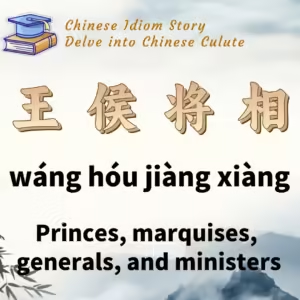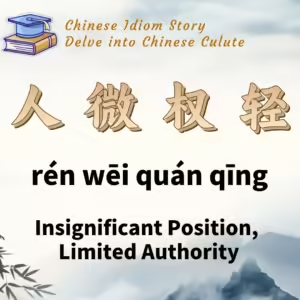
Chinese Idiom: 蜂拥而起 (Feng Yong Er Qi)
English Translation: Swarm Up
pīn yīn: fēng yōng ér qǐ
Idiom Meaning: To describe a large number of people rising up or rushing together.
Historical Source: From Shiji (史记) – The Records of the Grand Historian, specifically the chapter on Xiang Yu (项羽).
Idiom Story:
In his account of Xiang Yu’s life, Sima Qian concludes with the phrase “Tai Shi Gong said” to express his evaluation of Xiang Yu. He notes, “When the Qin dynasty lost its authority, Chen Sheng was the first to rebel, and numerous heroes swarmed up, competing with each other, to the point that they were countless. Yet, Xiang Yu, with minimal resources and no significant power, rose from the rural areas. Within three years, he led five other lords to overthrow the Qin dynasty, divided the realm, and conferred titles upon the nobles, thus wielding authority and earning the title of ‘Overlord.’ Though his position did not last, such an event had not occurred since ancient times.”
The essence of Sima Qian’s statement is that the tyrannical rule led to the downfall of the Qin dynasty, and Chen Sheng initiated the first rebellion, causing many heroes to rise and compete for power, leading to an overwhelming number of claimants. However, Xiang Yu, seizing the opportunity, initiated a revolt with little backing and, in just three years, managed to rally five armies of lords to destroy the Qin dynasty, divide the territories, and appoint nobles. He commanded authority, was known as “the Overlord,” and though his reign was short-lived, such a rise was unprecedented in recent history.
Sima Qian then points out Xiang Yu’s reasons for failure: he abandoned advantageous terrain in the Guanzhong area due to nostalgia for his hometown, exiled the rightful Emperor Yi, sought to establish his own rule, relied on personal intelligence without learning from the ancients, and attempted to unify the realm solely through military force. Consequently, within five years, his kingdom collapsed, and he met his demise at the Wu River.
From the phrase “Chen Sheng was the first to rebel, heroes swarmed up,” the idiom “蜂拥而起” was derived, meaning a multitude rising up in a collective manner.






